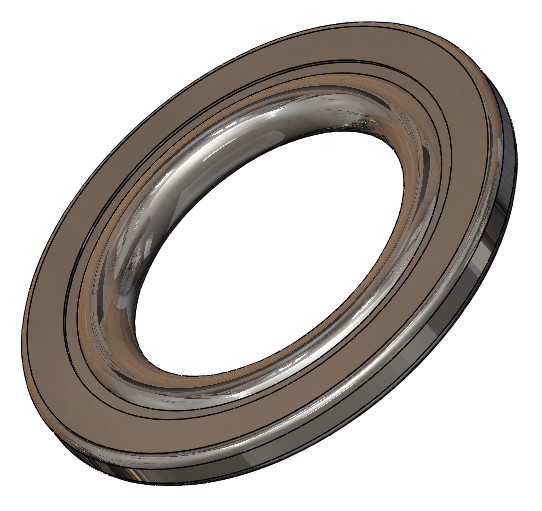Metal Jacketed Gaskets
Technical Specification
- Diameter: Metric or Inch
Possible materials:
- ISO: St 4.8/ 5.6 / 8/ 10/ 10.9/ 12/ 12.9
- ISO: A2,A4, 304L, 316L
- ANSI/ASME: A/SA193-B7/ B7M/ L7/ L7M/ B8/ B8M
- ANSI/ASME: A/SA194 2H/ Gr.8/ Gr.8M
- Alloy: Monel-400, Alloy-201, Inconel-625
- DIN Werkstoff: 25CrMo4, 42CrMo4 , X5CrNiMo17-12-2, X5CrNi 18-10, X36CrMo17
Possible coatings:
- Carbon steel: Hot-dip Galvanizing, Geomet-500, Zinc, Zinc-Nickel, PTFE/Xylan, TAKECOAT-1000
- Stainless steel: PTFE/Xylan, TAKECOAT-1000
Applications:
- Structural
- Machinery equipment
- Automotive
- Aerospace
Metal Jacketed Gaskets: Ensuring Integrity in Critical Sealing Applications
When it comes to industrial sealing solutions, metal jacketed gaskets emerge as stalwarts of reliability and precision, meticulously engineered to withstand extreme temperatures, pressures, and corrosive environments. These specialized gaskets find indispensable utility in critical sealing applications across a diverse spectrum of industries, where the integrity of joints and connections is paramount. Let us delve into the intricate world of metal jacketed gaskets, exploring their applications, materials, and the vital role they play in ensuring operational integrity.
Applications in Critical Environments:
Metal jacketed gaskets serve as indispensable components in sealing critical joints and connections in environments where standard gaskets would falter. They find extensive use in industries such as oil and gas, petrochemicals, chemical processing, power generation, and aerospace, where sealing integrity is non-negotiable. From high-pressure pipelines and vessels to flange connections in heat exchangers and reactors, metal-jacketed gaskets provide a reliable seal that withstands the rigors of demanding applications.
Range of Materials for Versatile Performance:
Metal jacketed gaskets are available in a wide range of materials, each carefully selected to suit specific operating conditions and application requirements. Common materials include stainless steel, carbon steel, copper, aluminum, and various alloys. The choice of material depends on factors such as temperature, pressure, chemical compatibility, and flange surface conditions. Stainless steel jacketed gaskets, for instance, offer excellent resistance to corrosion and high temperatures, making them suitable for applications in aggressive chemical environments and high-temperature processes. Copper jacketed gaskets, on the other hand, provide superior conductivity and are often used in electrical applications where sealing and conductivity are both critical.
Precision Engineering for Optimal Performance:
Metal jacketed gaskets are meticulously engineered to achieve precise dimensions, tight tolerances, and uniform compression, ensuring a reliable and leak-free seal. The metal jacket provides structural support and resilience, while the soft filler material, such as graphite, PTFE, or non-asbestos materials, ensures conformability and effective sealing under varying conditions. The combination of metal jacket and filler material allows metal jacketed gaskets to maintain their integrity and sealing performance even under extreme pressures, temperatures, and dynamic operating conditions.
Versatility Across Industries:
The versatility of metal jacketed gaskets makes them indispensable across a wide range of industries and applications. They are commonly used in flange connections, heat exchangers, pressure vessels, pumps, valves, and reactors, where reliable sealing is essential to prevent leakage of fluids, gases, or hazardous substances. Metal jacketed gaskets excel in applications involving high temperatures, pressures, and aggressive media, providing a dependable seal that ensures operational safety, environmental protection, and regulatory compliance.

